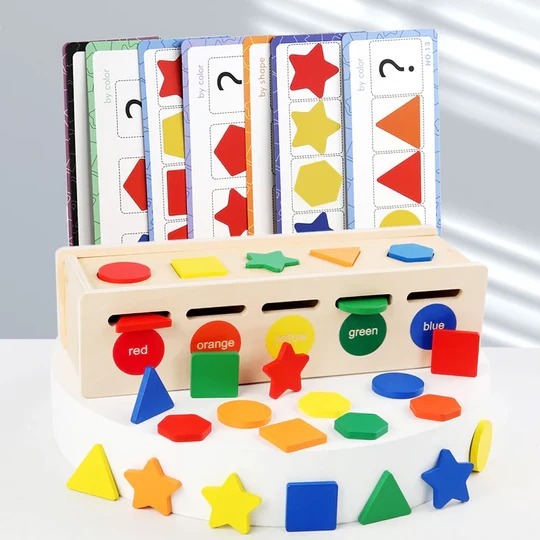Montessori education has become increasingly popular as parents and educators recognize its profound impact on child development. Rooted in the philosophy of Dr. Maria Montessori, this educational method prioritizes self-directed learning, independence, and hands-on exploration. Montessori classrooms are designed to foster creativity, critical thinking, and social-emotional growth in a child-centered environment. In this article, we will explore the principles of montessori montessori montessori education, its benefits, and how it contrasts with traditional educational models.
What Is Montessori Education?
Montessori education is a child-centered approach to learning developed by Dr. Maria Montessori in the early 1900s. She believed that children learn best through self-directed activities, hands-on learning, and collaborative play. The Montessori method is designed to nurture a child’s natural curiosity and promote independent learning. In a Montessori classroom, children have the freedom to choose their activities within a structured environment. This allows them to follow their interests, develop problem-solving skills, and build a deep understanding of the subjects they explore.
The Montessori method is characterized by its use of specially designed educational materials that encourage exploration and discovery. These materials are intended to be self-correcting, allowing children to learn from their mistakes without adult intervention. Montessori classrooms are typically organized into different areas of learning, such as practical life, sensorial activities, language, mathematics, and cultural studies. This organization helps children transition between activities and explore different aspects of their world at their own pace.
Key Principles of Montessori Education
Montessori education is based on several key principles that differentiate it from traditional models. The first is independence, which emphasizes the importance of allowing children to make their own choices and solve problems independently. Montessori classrooms are designed to encourage children to take responsibility for their learning, building self-confidence and a sense of ownership over their education. Teachers act as guides, offering support and encouragement without dictating the learning process.
Another fundamental principle is freedom within limits. While Montessori students are free to choose their activities, their choices are made within a carefully prepared environment that offers boundaries and structure. This balance between freedom and limits helps children develop self-discipline and respect for others.
Hands-on learning is another hallmark of the Montessori method. Montessori classrooms are filled with tactile, manipulative materials that engage children’s senses and foster active learning. This approach allows students to internalize abstract concepts through concrete experiences. For example, instead of learning math through lectures, Montessori students use physical objects like beads or blocks to visualize mathematical concepts.
The Role of the Montessori Teacher
In a Montessori classroom, the role of the teacher, or “guide,” differs significantly from that of a traditional teacher. Instead of leading the class from the front, giving direct instruction, and assigning tasks, the Montessori teacher acts as a facilitator of learning. They observe the children, understanding their needs, interests, and developmental stages, and guide them towards activities that will challenge and engage them. The goal is not to dictate the learning process but to support children in their individual journeys of discovery.
Montessori teachers are highly trained to recognize when to intervene and when to step back, allowing the child to explore independently. They create a rich learning environment filled with materials that invite exploration and promote deep concentration. By providing children with the tools they need and the freedom to choose how they use them, Montessori teachers encourage autonomy and intrinsic motivation. This contrasts sharply with traditional models, where the teacher is the center of the classroom and learning is often externally driven through rewards or punishments.
Benefits of Montessori Education
Montessori education offers numerous benefits for children’s cognitive, emotional, and social development. One of the most significant advantages is the development of independence. Montessori children are encouraged to make decisions, solve problems, and take responsibility for their learning. This fosters a sense of confidence and self-esteem, which is crucial for lifelong success.
Another benefit is improved concentration and focus. Montessori activities are designed to engage children deeply, encouraging them to work on tasks for extended periods without distraction. This ability to concentrate is a skill that carries over into all aspects of life, helping children succeed academically and professionally.
Montessori education also promotes social-emotional development. In a Montessori classroom, children learn to work collaboratively, respect others, and resolve conflicts peacefully. The multi-age setting allows for natural mentorship and cooperation, helping children develop empathy and communication skills.
Furthermore, the hands-on learning approach used in Montessori classrooms helps children develop critical thinking skills. By exploring concepts through direct experience rather than memorization, children gain a deeper understanding of the material. They learn how to think independently, approach problems creatively, and apply their knowledge to real-world situations.
Montessori Education vs. Traditional Education
Montessori education differs in several key ways from traditional educational models. One of the most notable differences is the emphasis on self-directed learning in Montessori classrooms. Traditional education often follows a teacher-led model, where the teacher delivers information, and students are expected to memorize and repeat it. In contrast, Montessori education encourages children to take control of their learning process by choosing activities that interest them and working at their own pace.
Another difference is the lack of grades or standardized testing in Montessori education. Instead of relying on external measures of success, Montessori education focuses on intrinsic motivation. Children are encouraged to take pride in their work and progress, rather than seeking approval through grades or rewards.
Additionally, Montessori classrooms emphasize collaboration over competition. While traditional classrooms often foster a competitive environment where students are compared to one another, Montessori classrooms encourage cooperation and teamwork. Children learn to support one another and celebrate each other’s successes.
The focus on multi-age classrooms in Montessori education is another stark contrast to traditional education. In traditional schools, children are typically grouped by age and expected to learn the same material at the same pace. In Montessori classrooms, children of different ages learn together, allowing for a more individualized approach that caters to each child’s unique developmental stage.
The Importance of Prepared Environments in Montessori
A cornerstone of Montessori education is the concept of the prepared environment. Montessori classrooms are carefully designed to encourage independence, creativity, and exploration. Every element of the classroom, from the layout of the furniture to the placement of materials, is intended to support the child’s learning experience.
In a Montessori classroom, the environment is arranged to allow children easy access to learning materials. Shelves are low and accessible, and materials are organized by subject, allowing children to choose activities independently. The classroom is also designed to promote order and calm, creating an atmosphere that supports concentration and focus.
The prepared environment extends beyond the physical classroom. Montessori teachers are also responsible for preparing a social and emotional environment that fosters respect, collaboration, and a love of learning. This holistic approach ensures that children feel supported and empowered to explore their interests and develop their potential.
Montessori at Home: How Parents Can Incorporate Montessori Principles
Montessori education doesn’t have to be limited to the classroom. Many parents choose to incorporate Montessori principles into their home environment to support their child’s development. One of the easiest ways to do this is by creating a prepared environment at home. This can be as simple as arranging toys and learning materials on low shelves that children can access independently or creating specific areas for different activities, such as reading, art, or practical life skills.
Parents can also encourage independent learning by allowing their children to make choices about their activities. Instead of directing playtime, give your child the freedom to choose what they want to explore. Providing Montessori-inspired toys, such as wooden blocks, puzzles, or practical life tools, can further support your child’s learning and development.
Another key aspect of Montessori at home is fostering hands-on learning. Encourage your child to participate in everyday activities, such as cooking, cleaning, or gardening, where they can practice practical life skills and engage their senses. Montessori education values real-world experiences, and involving children in daily tasks helps them develop a sense of responsibility and independence.
Conclusion
Montessori education offers a transformative approach to learning that prioritizes independence, creativity, and hands-on exploration. By fostering a child-centered environment where students can take control of their learning, Montessori education empowers children to develop critical thinking skills, self-discipline, and a love of learning that lasts a lifetime.
Whether in the classroom or at home, incorporating Montessori principles can have a profound impact on a child’s cognitive, emotional, and social development. By providing children with the tools they need to explore, experiment, and discover, Montessori education helps them build the confidence and skills they need to succeed in school and beyond. As more parents and educators recognize the benefits of this approach, Montessori education continues to grow in popularity, shaping the future of education for generations to come.


